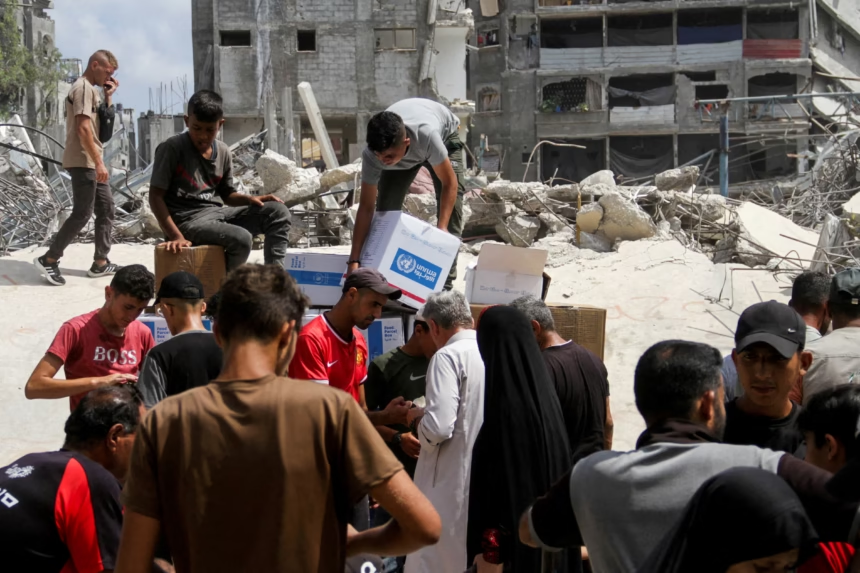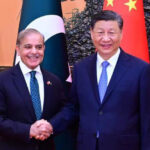Introduction
After an 11-week blockade, Israel has allowed a limited number of humanitarian aid trucks into Gaza, raising global attention to the escalating Gaza humanitarian crisis. Despite this move, the United Nations describes the aid as only a “drop in the ocean” compared to the urgent needs of the 2.1 million Palestinians facing severe shortages.
Background of the Gaza Blockade and Aid Restrictions
Since March 2, 2025, Israel has enforced a strict blockade on Gaza, halting all deliveries of food, medicine, and essential supplies as part of its military campaign against Hamas. This blockade has intensified an already dire humanitarian situation, leading to warnings of famine and widespread malnutrition.

The blockade’s impact has been devastating. According to the United Nations Office for the Coordination of Humanitarian Affairs (OCHA), essential supplies are critically low, and food insecurity has escalated sharply. To understand the conflict better, see our in-depth article on the Israel-Hamas Conflict Explained.
Recent Developments: Limited Aid Allowed
On May 19, 2025, Israel permitted five UN aid trucks to enter Gaza via the Kerem Shalom crossing, carrying baby food and other basic necessities. Prime Minister Benjamin Netanyahu cited diplomatic and practical concerns, including pressure from US Senate allies, as reasons behind this “minimal” aid allowance.
However, the UN’s humanitarian chief, Tom Fletcher, emphasized that while the resumption of aid is welcome, it falls far short of what is needed to prevent a famine. Fletcher warned, “Significantly more aid must be allowed into Gaza.”
The Humanitarian and Political Controversy
The Israeli government’s new aid strategy involves distribution hubs controlled by the Israeli military and private contractors, a plan criticized by the UN and aid agencies for violating humanitarian principles of neutrality and impartiality. This has sparked opposition from humanitarian organizations worldwide. For more on how blockades impact civilians, read our article How Blockades Affect Civilian Populations.
Meanwhile, far-right Israeli politicians have criticized the easing of restrictions, arguing that it could empower Hamas. On the international front, leaders such as the UK’s Sir Keir Starmer and France’s Emmanuel Macron have called the aid amount “wholly inadequate.”
Impact on Gaza’s Population
For Gaza’s civilians, the shortage of food and medicine is a daily struggle. Many families survive on a single meal a day, rationing carefully due to scarcity and soaring prices. The health consequences are severe, with reports from the Gaza health ministry indicating children have died from malnutrition during the blockade period.

Local charities, such as World Central Kitchen, struggle to meet needs due to lack of ingredients and access, underscoring the humanitarian emergency.
Conclusion
The decision to allow limited aid into Gaza represents a small but critical step amid a worsening humanitarian crisis. As political tensions continue and military operations persist, the international community must push for more substantial, unrestricted aid to prevent further catastrophe









